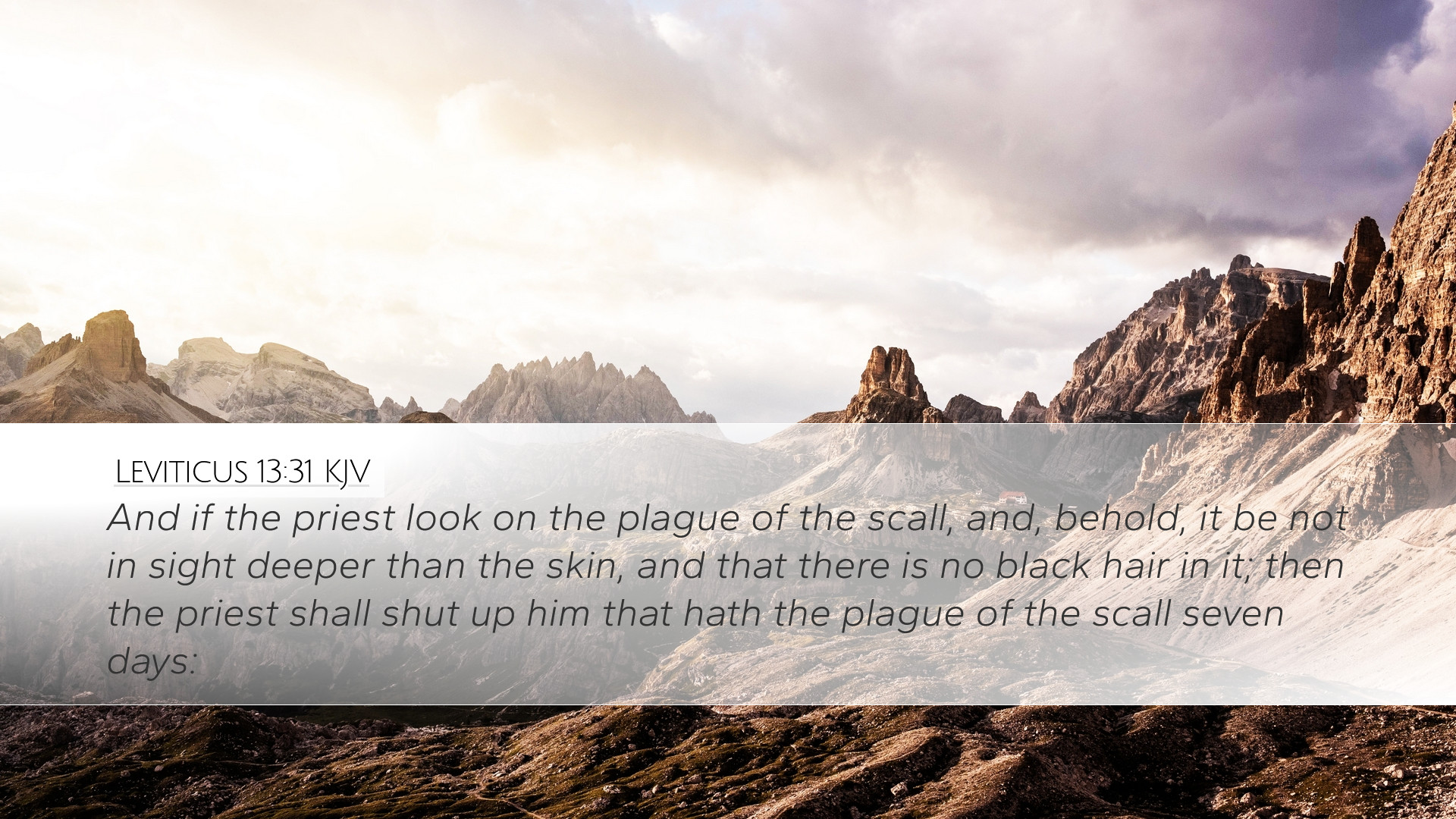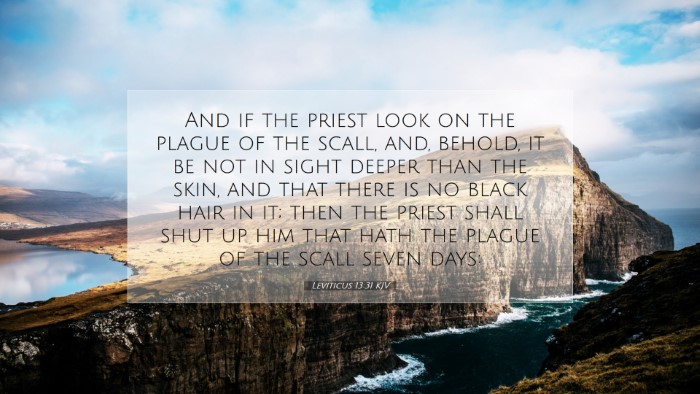Commentary on Leviticus 13:31
Leviticus 13:31 states: "And if the priest look on the plague and, behold, there is no white hair in the plague, and it be no lower than the other skin, but be somewhat dark; then the priest shall shut him up that hath the plague seven days." This verse falls within the larger context of the laws regarding leprosy and skin diseases, which were significant in the lives of the Israelites as they governed purity and community health.
Contextual Overview
This chapter outlines the procedures for examining, diagnosing, and managing various skin conditions, which were often regarded as a physical manifestation of sin or divine judgment. Leviticus serves as an essential guide to holiness and cleanliness, emphasizing God’s concern for His people's physical as well as spiritual well-being.
The Role of the Priest
- Authority in Diagnosis: According to Matthew Henry, the priest acted as a mediator of God’s law, possessing the authority to diagnose conditions based on observable criteria.
- Spiritual Implications: Albert Barnes notes that the priest’s role was not merely medical; it also held profound spiritual implications. The health condition of an individual had direct bearing on their standing within the community and their relationship with God.
Understanding the Plague
Leviticus 13:31 highlights specific observations regarding the nature of the plague. Adam Clarke suggests that the absence of white hair and the coloration of the plague were diagnostic criteria indicating that the disease might not be leprosy in the strictest sense, warranting further inquiry and precautionary measures.
Symbolism of Darkness
The description of the plague being “somewhat dark” carries deeper symbolic meaning. Dark colors in biblical literature often represent sin, turmoil, or judgment. Matthew Henry reflects on the notion that the skin could illustrate moral and spiritual states. The condition of the skin becomes a reflection of the inner spiritual reality.
Quarantine and Community Health
Shutting up the individual for seven days was a precautionary measure intended to protect the community. This practice illustrates the significance of community health and the need for thoughtful, measured responses to potentially contagious conditions. Barnes emphasizes that the Israelites’ communal purity was paramount, as it reflected their covenant relationship with God.
- Seven Days of Waiting: The waiting period serves a dual purpose: assessing the condition and allowing time for the Lord’s intervention. This can be viewed as an symbolic indication of dependence on God’s timing and providence.
- The Importance of Examination: The decision to hold the affected individual indicates a methodical approach to potential contagion. This reflects a broader theological theme: the interaction between divine holiness and human practices.
Lessons for Today
Leviticus 13:31 has significant implications for modern readers. It encourages not only health precautions but also underscores the importance of community responsibility and spiritual introspection.
- Spiritual Vigilance: Just as the skin ailments were a metaphor for spiritual issues, believers today are called to examine their own lives for signs of spiritual malaise.
- Community Responsibility: This verse reminds us of the collective responsibility of believers to care for one another, ensuring that the body of Christ remains healthy spiritually and emotionally.
Conclusion
In conclusion, Leviticus 13:31 emphasizes the intricate connection between physical health, spiritual integrity, and communal well-being. The call to examine ourselves, to seek the guidance of spiritual authorities, and to maintain purity within the community remains relevant. The teachings from this passage challenge us to reflect on how we embody God's holiness in every aspect of our lives.


